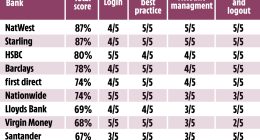RUSSIA could split off from the global internet as the Kremlin cracks down on the web, officials fear.
As real war rages in Ukraine, Russia has is pushing ahead with an intense information war online.
A key battleground in the Kremlin’s online crackdown is the Russian internet.
Several businesses have shut down their online and physical operations in Russia.
Meanwhile, Kremlin officials led by President Vladimir Putin have blocked access to some of the platforms that have not halted service in Russia.
Instagram, which is three times as popular as Facebook in Russia, was blocked by state officials.
The Kremlin’s plans to isolate Russia from the global internet predate the invasion of Ukraine.
In 2019, Russia passed the Sovereign Internet Law which redirects traffic through Russian servers – allowing a watchful Kremlin to censor the web.
In 2021, the Russian government labeled the internet a national security threat.
This month, Russia’s deputy digital minister Andrei Chernenko directed Russian websites to switch to domain name system (DNS) servers that are within Russia’s borders.
In doing so, internet operations in Russia are dependent on hardware within the country which strengthens the state’s ability to control content.
Russian citizens can use a Virtual Private Network (VPN) to bypass Russia’s rigid internet restrictions.
A VPN shields your IP address, hides your physical location and scrambles the record of your internet history.
But with Visa, Mastercard and American Express suspending operations in Russia, many citizens have no way to pay for web tools to help them evade Russian censorship policies.
Kremlin crackdown
The Russians’ work to domesticate the internet is not unlike the Chinese Great Firewall internet policy.
China governs the internet with intense scrutiny and has loads of restrictions against international websites.
The Chinese government has ownership over internet channels and lends access to people and businesses.
Chinese internet users rarely explore web pages that are based or created outside of China.
FreedomHouse, a nonprofit focused on analyzing the strength of freedom across the world, ranked the Chinese internet as one of the least free in the world with a score of 10/100.
The United States, for comparison, has an internet freedom score of 75/100.
In fracturing the internet, China and Russia leave citizens just with state-approved networks as their only source of information.
“They want the ability to move to not one big global network but different networks where you can surveil your citizens more easily,” Karen Kornbluh, an expert on US-European diplomacy, told NBC News.
“In the longer term, Russia wants to be able to cut off access to Signal,” Kornbluh said.
Signal is a secure messaging app used by journalists to avoid government snooping – and it’s now the fastest growing app in Russia.
RT, one of Russia’s state-controlled media networks, has pushed false justifications for the invasion of Ukraine and has come under fire for other propagandist tendencies.
By insulating the Russian internet, networks like RT could be the only source of information left for Russian citizens.
The splintering of the internet is the latest installment in Russia’s larger effort to clamp down on free speech.
We pay for your stories!
Do you have a story for The US Sun team?











